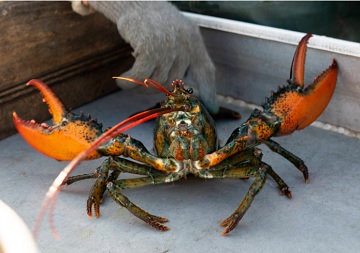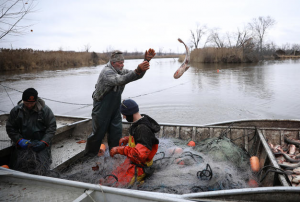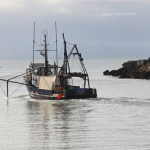Tag Archives: Chinese buyers
“A bucket and a net, and you’re in business.” Looming tensions in Maritime eel fishery
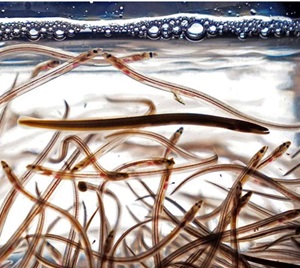 Commercial harvesters of baby eels in the Maritimes say there’s little hope the poaching and violence that forced the closure of the lucrative fishery last season will subside in 2024. The federal Department of Fisheries and Oceans closed the fishery for the tiny, translucent fish known as elvers on April 15 after reports of violence related to unauthorized fishing. There were accusations of assault and even shots fired along coastal rivers in parts of Nova Scotia and New Brunswick. The increased illegal activity comes as demand grows for the young eels, which are sold live to aquaculture operations in Asian markets such as China and Japan, where they are grown for food. Prices had reached as high as $5,000 per kilogram in 2022, partly because sources for the fish species in Europe and Asia had begun to dry up. more, >>click to read<< 06:02
Commercial harvesters of baby eels in the Maritimes say there’s little hope the poaching and violence that forced the closure of the lucrative fishery last season will subside in 2024. The federal Department of Fisheries and Oceans closed the fishery for the tiny, translucent fish known as elvers on April 15 after reports of violence related to unauthorized fishing. There were accusations of assault and even shots fired along coastal rivers in parts of Nova Scotia and New Brunswick. The increased illegal activity comes as demand grows for the young eels, which are sold live to aquaculture operations in Asian markets such as China and Japan, where they are grown for food. Prices had reached as high as $5,000 per kilogram in 2022, partly because sources for the fish species in Europe and Asia had begun to dry up. more, >>click to read<< 06:02
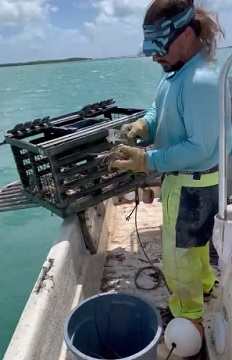
Commercial Lobster Season off to a Good Start as Keys Fishermen Deal with Increased Materials and Gas Prices
The Upper Keys boats have been “killing it,” with lobsters spilling out of containers onto decks, crews have been coming back to the docks earlier in the day due to lack of storage on the boats. However, in the Middle and Lower Keys, less product is being found. But this year, no matter how many “bugs” are hauled in, the chatter among all the boats is that overhead is biting into profits and thank goodness, the Chinese are buying. “The harvest is OK. Not fantastic, but it’s good,” George Niles told Keys Weekly. He has been fishing out of Stock Island for 50 years. “But we’re getting two dollars less per pound than this time last year. Traps are $50 to $60 apiece, compared to $35 three years ago. And fuel is $2 more than when Biden was elected. And that’s pure profit.” >click to read< 08:43
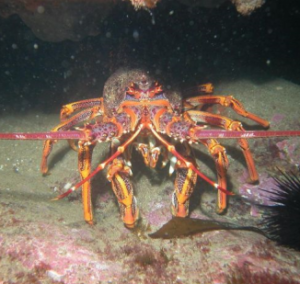
Support local fishers by buying local! Virus outbreak in China triggers Tasmanian lobster lockout
Tasmania’s rock lobster industry has been left treading water following mass cancellations from Chinese buyers.,, “Because of that the restaurants have cancelled their orders,” Mr Sansom said. He estimated more than 90 per cent of Tasmania’s red rock lobster market was exported to China each year. “The exporters, their tanks are full. Which means the fishermen can’t sell it, so their boats are full,” he said. “As far as I know no one is exporting. >click to read< 10:06
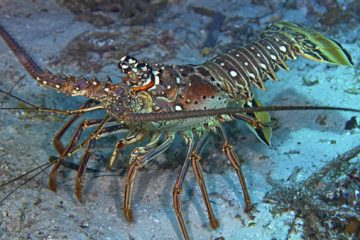
The Business of Lobster
With one of the fastest growing economies, and an exploding middle class that extends onto the mainland, the Chinese have developed a taste for the better things in life – and Florida lobster is surely one of them. For the lobster, this was the culmination of a 9,000 mile journey – a journey that in recent years has transformed the commercial fishing industry in Florida. Before the Chinese started buying their lobsters, the fishermen of the Florida Keys were getting just $3 a pound for their catch. Boat captains from Key West to Miami were struggling to survive. >click to read< 12:24






